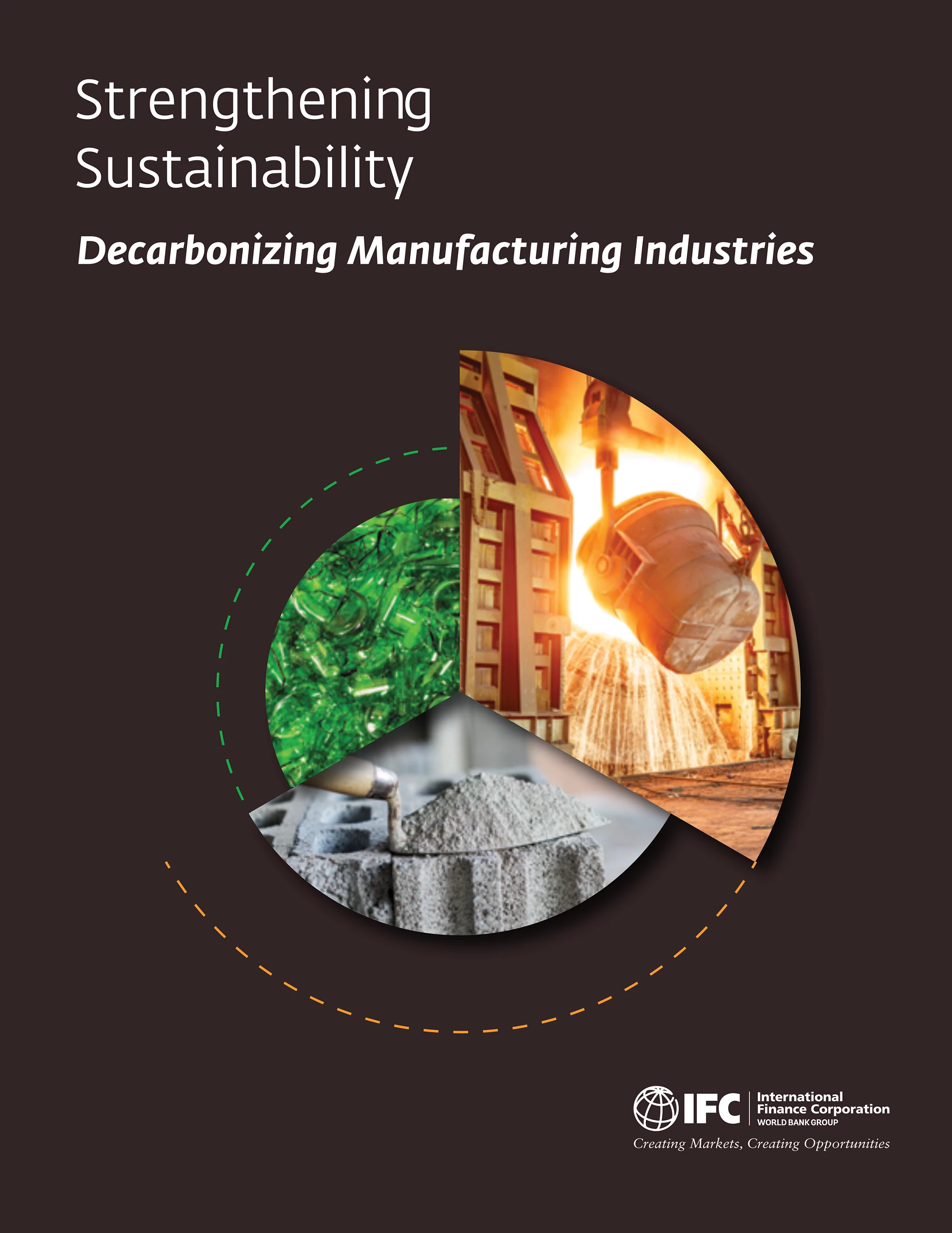Growing global concerns over climate change are putting an increasing focus on sustainability. This report is part of an occasional series on sustainability in industry, which examines the opportunities and challenges facing various industrial sectors and the role that the International Finance Corporation can play to support their efforts and contribute to a greener planet.
Manufacturing is essential for economic growth, and its supply chains are pivotal for ensuring the wellbeing and advancement of people and economies. Among the largest and most critical manufacturing industries are steel, cement, glass, and chemicals. These industries are the biggest industrial consumers of energy, helping to make heavy industry responsible for 20 percent of global direct carbon dioxide emissions today. Given the integral role that these industries play in the global economy and in people’s lives, it will be critical for them to decarbonize their production processes if the world is to meet emissions-reduction goals and prevent intensifying climate disasters.
Despite the costs and technical complexities involved in decarbonizing these industries, the private sector, together with governments and a range of other stakeholders, is pursuing carbon abatement strategies to make manufacturing more energy-efficient and less harmful to the planet. These strategies involve:
1) shifting manufacturers to cleaner energy sources
2) encouraging more efficient production processes
3) offsetting the financial costs and risks of decarbonizing
4) investing in technologies that can eliminate waste by capturing, recycling, remanufacturing, and reusing spent material.
Contents
- Sector Background
- Sustainability
- Challenges & Opportunities
- IFC Role
- Conclusion
Click here to access all reports in the Sustainablity Series
